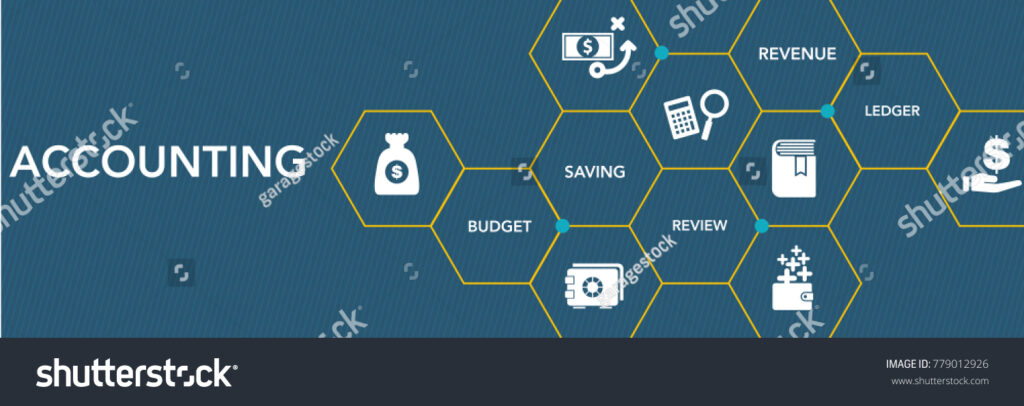Accounting and Taxation are topics that are widely used in organizations. They are business terminologies that are self-explanatory. Accounting and taxation involve maintaining Account records.
Tax accounting is the term used to generate taxable liabilities and assets and in the accounting records of individuals or businesses. To understand the topic better, refer to 30 questions of Accounting and Taxation.

Q1. What is Accounting?
Accounting in simple terms refers to the process of maintaining financial records. The financial records are maintained as per the financial years. Accounting includes the process of summarising financial transactions, analyzing the financial transactions, and reporting the financial records for operational and regulatory needs.
Accounting helps a business to identify if they are making a profit or loss with their income and expenses. The factors that are involved in preparing accounting statements are assets, liabilities, cash flow, capital, and many more. The statement helps in various decision-making processes of the business.
Q2. What is Taxation?
Taxation is the process, where the taxes are laid by the government in various sectors. These are paid by individuals or organizations. Tax is known as financial obligations, which are imposed by the government on businesses and individuals. Tax is revenue to the government, which is used for public service and betterment of state and country.
Taxation is bound by rules and regulations. Taxes are based on the tax bracket of an individual income or the product and services which are offered or used. Any deviation from an individual or business in paying the tax is punishable. However, the government has given ways to save tax which are legal methods.
Q3. What is Taxation in Accounting?
Tax Accounting focuses on payments and Tax returns. This does not emphasize the preparation of financial statements for the public. This refers to the preparation of statements for tax compliance purposes. It provides guidelines and a framework to determine taxable profit. There are multiple components involved in accounting for taxation.
Q4. What are the different types of Accounting?
The types of accounting are the categories or specialization areas in accounts. Let us understand 10 common types.
Financial accounting
A process of preparing financial accounting reports. Financial account reports help in determining the position of the company if its profit or loss and making strategies to achieve its profit goals. These reports include all the financial activity which is dealt with by the organization.
Managerial accounting
This accounting report is prepared to make the short term and long term goals of the company. These are prepared for the internal stakeholders. This document helps in the financial planning of organizations.
Public Accounting
The business assists in providing information to their clients on Tax returns, legal advice, auditing, and technology-related matters.
Government Accounting
This accounting deals with financial planning within the government. The government here is local, state, and federal. The accounting standard complies with GASB Governmental Accounting Standard Board. They manage the budget and fund allocation.
Cost Accounting
The cost accounting report helps to document, present and review costs regarding manufacturing. This involves variable and fixed costs. The cost is determined to value the output based on the cost involved in the processing of the product.
Tax Accounting
This relates to the planning in regards to the Tax. The accountant checks if the company is following Tax compliance, assists in the tax return, tax planning, and making Tax decisions.
Auditing
This is related to public accounting which includes Internal auditing and external auditing. In external auditing, the financial statements are shared with third parties. The third party provide feedback on financial statements. Internal audit refers to when the internal auditor reviews the responsibilities of the department, management policies, and procedure of a project. They provide feedback to make the department more efficient and profitable.
Accounting Information System
AIS refers to the process, where the decision is taken on a period to implement new technology, monitor existing applications. This process helps to determine productivity over time.
Fiduciary Accounting
Here one individual handles the account for clients. They should provide financial information to clients once a year. They serve on behalf of their client for financial matters like investment, real estate, and others.
Forensic Accounting
In this accounting, all the information is gathered and documented. The documented information includes cash transactions, debit transactions, credit transactions, and all the financial transactions. They also work on legal cases.
Q5. What are the different types of Taxation?
The Tax is broadly classified into Direct and Indirect Tax.
Direct Tax:
These Taxes are laid on entities or individuals. These are non-transferable taxes and have to be paid by the person who is liable to pay. Examples of these taxes are Income Tax, Capital gain Tax, Securities transaction tax, Prerequisite tax, Corporate Tax.
Indirect Tax:
These taxes refer to Taxes on goods and services. These are not laid on individuals or entities but products and services. Example: Sales Tax, Service Tax, Goods and service tax, Value added tax, customs duty, excise duty.
Q6. What are the rules of Accounting?
There are three golden rules, which are found in accounting. The Debit in accounting is referred to as DR and Credit in accounting is referred to as CR.
- Debit – receiver, what comes in and expenses and all losses
- Credit- Giver, What goes out and income and all gains
Q7. What is the asset?
An asset is known as a resource with economic value. These resources are owned by the individual, organizations, and corporations. These resources are also controlled to provide future benefits. The assets are presented in the balance sheet along with all the other financial transactions. The asset can be known to provide future cash flow, improve sales or reduce expenses. There are different types of assets like Current, fixed, financial, and tangible assets.
Q8. What are the different types of assets?
Current assets
Current assets are resources that can be immediately or within a year converted to cash. Current assets include cash, inventory, account receivables, and prepaid expenses.
Fixed assets
Fixed assets are long-term assets like buildings, equipment, and plants. The adjustments of these assets are based on depreciation.
Depreciation:
This represents the usage of an asset. This is a method of allocating the cost of fixed assets on the life expectancy or useful life.
Financial assets
They refer to investment in assets and securities of institutions. Financial assets can be valued, depending on how the investment is categorized. They include stock, bonds, and securities.
Intangible assets
These assets do not have a physical presence. These assets include goodwill, patent, trademark, and copyrights.
Q9. Can Labor be considered as an asset?
Labor is work done by Human beings. They are paid wages and salaries. Hence, they are not considered an asset.
Q10. What is Liability?
The liabilities of a company are financial obligations. Few liabilities are essentials for day-to-day business. Liabilities help in determining companies’ capital structure and liquidity. There are two types of identified liabilities Current and long term.
Q11.What are the types of Liabilities?
Current liabilities
The current liabilities are short-term and usually due within one year. These are regular business operations. Liquidity is determined as a ratio between current liabilities and current assets. The example of current liabilities are
Account payable
These are known as unpaid bills of a company to its vendors
Interest payable
The interest expense which is incurred remains unpaid. The opposite of this is interest expenses which are already paid. Interest expenses are always reported in the income statement and interest payable are recorded in the balance sheet.
Income taxes payable
These taxes are to be paid by the company to the government within 1 year of owned tax.
Bank account overdrafts.
These are loans provided by the Bank for payments processing when insufficient funds are available in the Bank.
Accrued expenses.
Expenses that are incurred with no supporting documentation
Short term loans
The maturity of loans is one year.
Long term Liability
These liabilities are due for more than a year. These can also be a source of financing and also refers to the amount that arises from business operations. The types are
Bonds payable
Outstanding bonds issued by the company. The bonds payable account in the balance sheet indicates the face value of the outstanding bond of a company
Notes payable
These are the number of promissory notes issued. They on the balance sheet determine the value of promissory notes.
Deferred Tax liability
These are differences between tax amount which is recognized and actual. This denotes companies either underpay Tax at a certain point or will overpay in the future.
Mortgage payable or long term debt
When the company takes mortgage or debt, the face value of the borrowing principle is recorded in the balance sheet as a non-current liability
Capital Lease
These are recognized when companies enter rent for equipment for the long term. They are the present value of the obligation under rent.
Q12. What are contingent Liabilities?
These liabilities may or may arise in a business situation. These are depending on uncertain events of the future. The contingent liability can be recognized if the below conditions are met.
- The probable outcome
- A reasonable estimation of liability can be recognized.
The common example of this liability is legal liabilities.
Q13. What is Capital?
Capital is a term associated with Patent and financial asset which benefits its owner. Capital is the cash that is used for investment purposes or productive purposes. There are various types of capital like
Debt Capital
The capital which is acquired by borrowing is known as Debt capital. This can be obtained from any sources like government and private sources. For institutions, they can be borrowing from banks and for individuals borrowing from family, friends, online, credit companies, or loans.
Working Capital
These are capital that is utilized for day-to-day operations. They are calculated by two assessments.
- Current asset and current liabilities
- Accounts payable is derived by adding accounts receivable and inventory.
Equity Capital
The equity capital consists of public, private, and real estate. Public and private equity usually occurs in the form of shares and stocks. The public equity is operated by listings and private in the closed group of investors.
Trading Capital
This capital is related to the operations of the business. This term is used by brokerages or institutions which have multiple trades in a day.
Q14.What are accounting standards in India?
Ind-As which is an Indian accounting Standard is implied to the Indian business. These standards from 1977 are supervised by the board which is known as Accounting Standard Board (ASB). These are represented by government, professional bodies, and academicians.
The objective of the accounting standard is to ensure the accounting is as per the standard to make it easy to understand and reliable. Objective 2 is to streamline the process and make it convenient for the comparison of organizations. Objective 3 is to have one set of rules and disclosure requirements.
Q15. What are various Accounting Standards?
There are a total of 29 standards listed under Indian accounting standard, List of Accounting Standard is as per below
- Accounting Disclosure is under reference AS1
- Stock valuation is under reference AS2
- Cash flow statements are under reference AS3
- Events and contingencies occurring after the balance sheet us under reference AS4
- Net profit and loss for the period. Changes in policies and previous period items under reference AS5
- Construction Contracts under AS7
- Revenue recognition under AS9
- The Property, Plant, and equipment under reference AS10
- Effects of foreign rate changes under reference AS11
- Accounting for government grants under reference AS12
- Accounting for investment under reference AS13
- Accounting of Amalgamations under reference AS14
- Employee benefits under reference AS15
- Borrowing cost under reference AS16
- Segment reporting under reference AS17
- Related party disclosure under reference AS18
- Leases under reference AS19
- Earnings per share under reference AS20
- Consolidated Financial statement under reference AS21
- Accounting for Taxes on Income under reference AS22
- Accounting for investment in associates under financial statements under reference AS23
- Discontinuing operations under reference AS24
- Interim financial reporting under reference AS25
- Intangible asset under reference AS26
- Financial interest reporting in the joint venture under reference AS27
- Impairment of assets under reference AS28
- Contingent assets, contingent liabilities, and provisions under reference AS29.
Q16. What is the balance sheet?
The financial sheet statement that communicates the book value of the organization is known as the balance sheet. These include liabilities, assets, and equity. The balance sheet provides an overview of the company’s performance in the past, present, and future. The balance sheet should always match by tally and balance. If the balance sheet does not match this includes any error, incomplete data, or miscalculations.
Q17. How to prepare a balance sheet?
The basic steps to prepare a balance sheet are
- Determine the reporting period and date
- Identify your assets include all types of assets
- Identify liabilities include all types of liabilities.
- Calculation of shareholder’s equity
- Add liabilities to Shareholder’s equity and compare with assets.
Q18. What is the basic difference between a balance sheet and a trial balance?
The balance sheet is the core part of a financial statement. This summarizes all the assets, liabilities, and shareholder equity. This is prepared based on the accounting standards.
The trial balance is known as a standard report, which lists all the ending balances of every account. This is used by company auditors.
Q19. What can be the importance of source documents in accounting?
For every generation of the financial transaction, the paper trail is created. This paper trail is known as source documents. The bookkeeper verifies the documents and records the transactions to maintain original, clarity and accurate data. The source document describes transaction details such as date, amount, purpose, and parties involved.
Q20.What is an income tax return?
The ITR (Income tax return) is a form submitted by an individual to the Department of Tax India. This contains all the incomes during the year and taxes during the year. The returns are filed based on the financial year which is from 01st April to 31st March. There are 7 types of form ITR 1 – ITR 7 which are different and based on the nature and amount of income of a particular taxpayer.
Q21.How to file a return on a government portal?
The steps involved in the filing of an Income-tax return is
- Calculate the income and tax
- Certifications, Form 26AS, and TDS details – TDS is Tax deducted at the source
- Choose the income tax form correctly
- From income tax portal download ITR Utility
- In the downloaded file fill all the details
- Validate information
- Convert file in XML Format
- Upload file on the portal to complete.
Q22. What is TDS?
The TDS is Tax deducted at the source. This was introduced to deduct Tax at the source. TDS is deducted as per the rates prescribed by the department of taxation.
Q23. What is TCS?
TCS is the Tax collected at the source. These taxes are payable by the seller but collected from buyers during the sale. These transactions are business or trading.
Q24.What is Bad debt and how do you calculate Bad debt in accounting?
The loans or outstanding balances that cannot be recovered and must be written off are known as Bad debts. The bad debts are calculated with the formula by dividing bad debts from accounts receivable and multiplied by 100.
Q25. What are the best applications for accounting?
The best application in 2021 are
- Quickbooks online: Best for all the business.
- Xero. This is best for micro-business owners.
- FreshBooks, This is best for service business.
- Self-employed Quick books. This is for part-time freelancers.
- Wave. This is free software.
Q26.What are the best applications for Tax?
The best 2021 applications for Tax are
- TaxAct express. They are for overall
- Credit Karma Tax. They are a free option
- Self-employed Quick books. They are for business owners
- H&R Block Tax Prep and File. They are for live support.
- TurboTax Tax Return app. They are for Fast Filing.
- YNAB. They are for Ongoing expense tracking.
Q27. What is Business Income
These refer to earnings by Businesses and are classified under the ordinary Tax. These results are based on the performance of the entity and it is based on profit and loss of the entity. The profit and loss are calculated from all sources of revenue minus the operational cost of doing business.
Q28.What is the difference between Corporate Income Tax and personal income Tax?
Corporate tax is paid by the company to the government based on their income. The maximum tax is equal to 35%. Net income is arrived at by subtracting corporate taxes from earnings in the company’s income statement. These taxes apply to Corporations and foreign establishments.
Personal tax is paid by individuals based on income from salary and wages to the government. The personal income tax rate varies on Tax slab rates and varies from country to country. These taxes apply to Self-employed and full-time employees.
Q29. What is Tax Evasion?
Tax evasion is an illegal way to minimize tax by doing fraudulent activity. Evasions are done by either reducing income or inflating expenses. They are done with a motive to show less income to avoid high taxes and reduce burden.
Q30.What is Tax avoidance?
Tax avoidance is an illegal method to minimize tax. This is a method of using the Tax regime in a single territory for personal benefit to decrease tax.
Q31.What is Tax planning?
Tax planning refers to financial planning for the efficiency of tax. This helps one to reduce tax liabilities by using tax exemptions, benefits, and tax rebates.

Frequently Asked questions
What are a few top careers in accounting?
- Auditor
- Information and Technology Accountant
- Financial analyst
- Forensic Accountant
- Managerial accountant
- Controller
- Chief Financial Officer
What are few top careers in Tax accounting?
- Tax Analyst
- Tax specialist
- Certified public accountant
- Tax consultant
- Payroll specialist
- Tax attorney
- Compensation coordinator
- Tax Preparation
What is the job role of a Tax accountant?
Tax accountants work on tax strategies that help defer, minimize or eliminate the tax. They help in arranging audits with taxation authorities. They work with clients to produce tax documents as per rules and regulations.
Who provides the best course for Tax accounting?
Henry Harvin
Henry Harvin provides the best course on Accounting and Taxation. Their business accounting and taxation course including GST, Income Tax, Balance sheet, Tally, Excel, Payroll, And HR payroll.
Henry Harvin courses are ranked as top accounting and taxation courses. They offer 9 in 1 course with an integrated Curriculum. They also provide one year of gold membership in their finance academy. They provide 100% practical training. Their projects are industry-graded.
The benefits of doing certification courses are
- Learn Accounting and Taxation basics
- GST and Indirect Taxation concepts
- Experience sharing
- Understanding to TDS and TCS
- Learn from expert trainers
- Business income and Income Tax knowledge
- Doubts clarification support
- Develop and learn financial strategies
- Litigation management concepts
The fee for the course is Rs 34,500 for a live virtual classroom, which starts every week. The instructor-led live online classroom is also Rs 34,500.
The cities where Henry Harvin institutes are located are Delhi, Mumbai, Chennai, Kolkata, Agra, Bangalore, Patna, Surat, Kanpur, Jaipur, and many more.
The courses that frequently bought along with this certification are
- Post Graduate program in Accounting and Taxation
- Post Graduate program in GST
- Post Graduate program in Income Tax
- Advance Tally ERP 9 Course
- Advanced Excel course
What is ICAI?
The Institute of Chartered Accountants of India is the professional accounting body under the ministry of government under the department of Corporate affairs.
The above mentioned are a few questions and answers related to Accounting and taxation. You can read more interview questions based on Accounting and taxation, to prepare for the interview.






I might learn how the Accounting and Taxation Department functions and what difficulties you have at work one of the top articles for tax and corporate accounting courses Top corporate accounting and taxes blogs are available online and are quite helpful. I appreciate the helpful posts.
I was seeking for an outsourcing job at the time, and during the lockdown I was a little unsure of what to do and what not to do with my future until I learned more about this course. I made a plan to become well-versed in everything and was aware of the primary 20 principles that provide the greatest income tax course throughout experimentation. Amazing post.
This course and the way it was taught were both incredibly enjoyable to me. Due to the flexibility of BAT online course, I personally learn and retain information much better. I appreciated how you made it very evident that the topics covered in this course’s assignments are excellent ones. I am eager to enrol in more online courses.
I devised a strategy to learn everything, and I was aware of the key 20 ideas that, through testing, offer the best tax interview questions and answers amazing article. I can’t wait to sign up for more online classes. I liked to study here.
I devised a strategy to learn everything, and I was aware of the key 20 ideas that, through testing, offer the best income tax training. BAT training course such a amazing article. I’ve learned a lot from you about travel and life lessons. You teach some incredible courses. I appreciate you encouraging me to do more!
Am excited to learning more about this course, I was a little unclear about what to do and what not to do with my future. The lectures are just as interesting as the Bat certification training course itself and the substance is clear and valuable. Teachers are constantly there to help us with our issues. Thanks a lot!
My knowledge of this course increased. I devised a strategy to learn everything, and I was aware of the key 20 ideas that, through testing, offer the best income tax training. Amazing article on Accounting and Taxation Questions and Answers. I liked how you made it very clear that the subjects covered in the assignments for this course are outstanding ones.
I liked how you made it very clear that the subjects covered in the assignments for bat certification course are outstanding ones. I can’t wait to sign up for more online classes. Professors have excellent speaking skills, a wonderful voice, and attractive looks. Please take part. This course comes highly recommended. We appreciate you sharing with us.
Instead of having to wait until the next semester to take the other classes that people desire to take, the course calendar should conflict with those times. Happy to know Accounting and Taxation Questions and Answers. It’s made useful for me and I easily crack interview an got a good salary package job.
This is a great resource for anyone looking to brush up on their accounting and taxation knowledge before an interview. The questions and answers are comprehensive and cover a wide range of topics. I appreciate your contribution to Course news daily.
I found this article to be very helpful in preparing for my upcoming accounting and taxation interview. The questions and answers provided gave me a good understanding of what to expect and how to respond.
I found the questions and answers in this article to be very relevant to the current state of accounting and taxation in 2023. It’s a great resource for staying up-to-date and ahead of the curve in this ever-changing field.